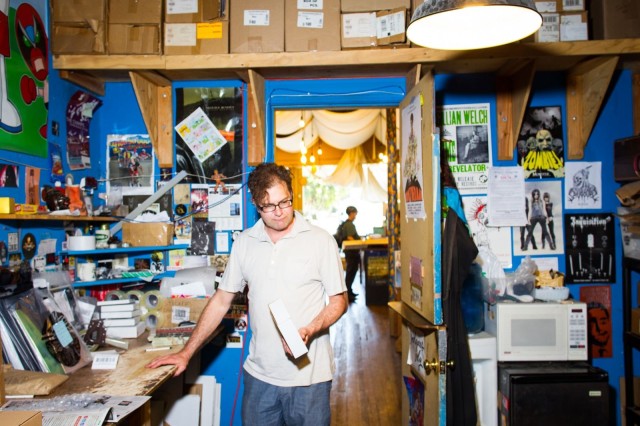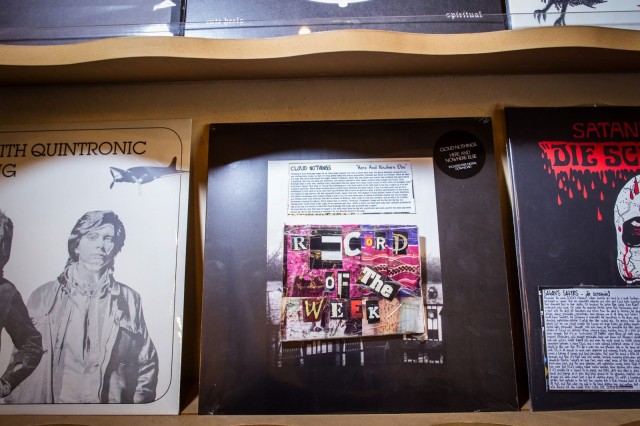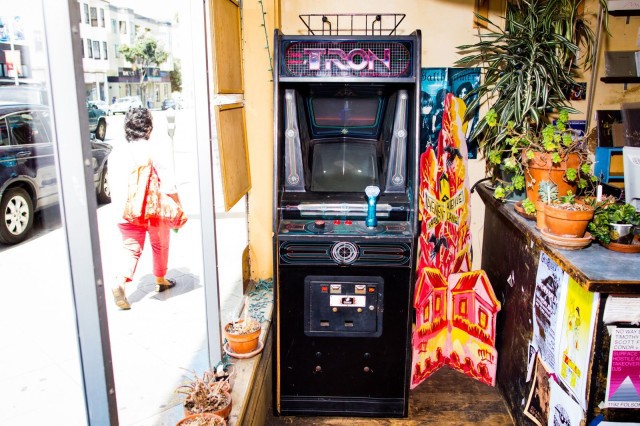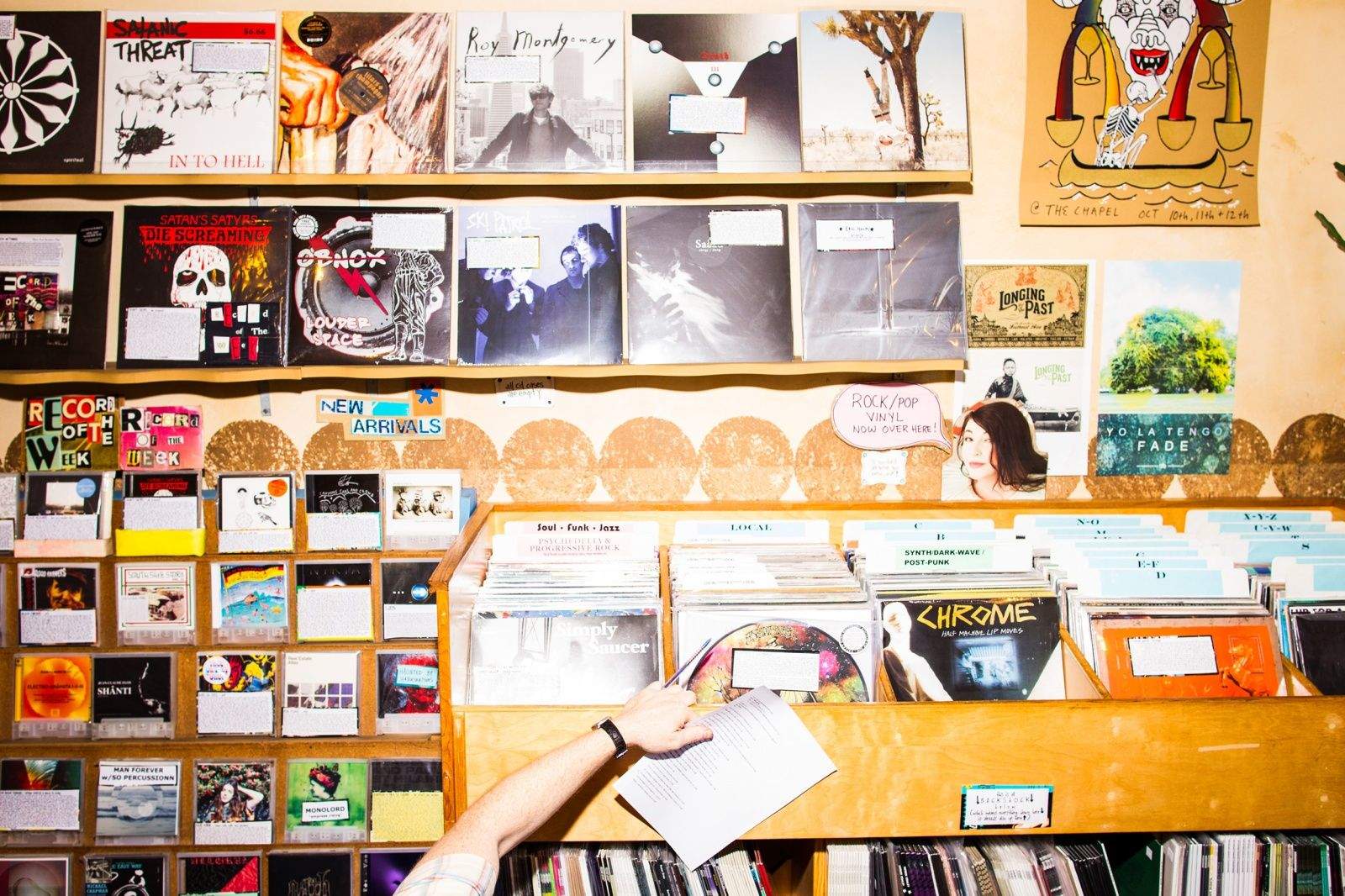Stroll into your local record store and you won’t find the dusty-floored wasteland of empty bins you might imagine. Chances are you’ll see something that’s more vibrant, relevant and vital than before.
Like the nerdy know-it-alls at specialty wine stores and comic book shops, today’s typical employee at an indie record store is still a tastemaking wizard — just turned up to 11. Staff picks bear the unerring zeal of the true believer, and staffers are more focused on uncovering stuff that you’ll never find on a Walmart CD shelf.
“Since there’s been a turn to Spotify, Bandcamp and iTunes, we sell way more vinyl,” said Jim Haynes, assistant manager at San Francisco’s Aquarius Records. “We’re at about 75 percent vinyl to 20 percent CD and a smattering of cassettes. People are turning to an even more seemingly obsolete medium.”
Predictions of the end of physical media are as played-out as those reports about the death of rock ‘n’ roll, with everyone and their mother proclaiming that Spotify and other streaming services have killed the local record store. That fear-mongering sounds smart and might even contain a kernel of truth, but the reality is much different.

The hot thing right now is artisanal everything. Indie-crafted beer, cheese, furniture, you name it: If it even has a faint veneer of handmade or hard-to-find, it’s gonna sell like hotcakes. Hell, even toast has gone indie.
Recorded music is no different. Haynes said Aquarius Records, operating in San Francisco’s Mission District since 1970, specializes in records that most mainstream listeners have no idea about.
“[We carry] the bigger names, too, [like] Matador, Sub Pop, Merge and Castle Records,” he says, naming some fairly non-mainstream labels, “plus some obscure bands from Finland, New Zealand, Estonia — you know, any place that isn’t getting a large market share in the states. Not just weird for the sake of weird, but legitimately compelling stuff.”
How is this store even relevant in 2014?
“Streaming services,” Haynes told Cult of Mac over the phone, “while they are important in terms of marketing music and make it really easy for you to listen to a Fleet Foxes song whenever you want to, minimize the importance of the physicality of the object.”

More than a third of listeners get their groove on with free online radio and on-demand services, according to the latest NPD Group figures. To survive this latest change in music consumption habits, record stores must become the equivalent of the artisanal knot store, with the keepers of the arcane lore front and center, ready to steer you toward the coolest and best records on offer from all over the world.
“Vinyl really never went away, and there were always folks buying and collecting it,” said Aquarius’ Haynes. “In late ’90s and early ’00s, the CD was the principal medium — only a handful of people were putting out vinyl at the same time. Now, though, vinyl is the principle medium for our purposes and CDs are almost an afterthought.”
The past seven years have seen a boom in vinyl sales, with many young customers snapping up old-school records, said Terry Currier of Music Millenium in Portland, Oregon.
“Vinyl has an allure because it is the best way to experience great sound in music in most cases,” Curry told Cult of Mac in an email. “It’s also a great way to experience music as art as you not only interface with the music but you experience the art of the packaging of vinyl and usually sit and pay attention to the music as you know that in 15 to 20 minutes the side of a vinyl will be over.”
This confluence of factors and opinions is turning record stores into the audio version of The Simpsons’ comic book store, complete with (in this case) Record Store Guy. These uber-fans know their stuff, and can put together an old-school playlist like no other.
Mike Manly at Hot Dog Music in Sacramento, California, thinks the key factor is personality, something streaming music services (and the big box stores that sell CDs) lack.
“Music is personal to people and (given the option) most people prefer to buy it from a store that has a personality,” he writes on the Record Store Day website. “Indie record stores care about the music and people are learning to appreciate that again. Buying music at the same place you get your dog food is a totally empty experience. Indie record stores fill you up.”



